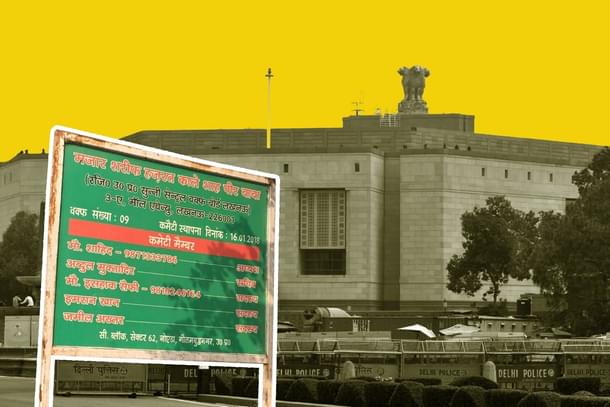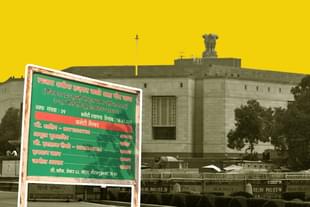News Brief
Lok Sabha Passes Waqf Amendment Bill After 12-Hour Debate; Government Cites Reform, Opposition Alleges Assault On Minorities
Kuldeep Negi
Apr 03, 2025, 08:16 AM | Updated 08:16 AM IST
Save & read from anywhere!
Bookmark stories for easy access on any device or the Swarajya app.


The Lok Sabha passed the Waqf Amendment Bill around 2 am on Thursday (3 April) following a 12-hour-long debate marked by sharp exchanges between the government and Opposition, NDTV reported.
Despite intense debate, the government’s numerical advantage ensured the bill’s passage by a vote of 288-232.
The bill, which seeks to amend the Waqf Act of 1995, is scheduled to be introduced in the Rajya Sabha today.
Key provisions in the bill include mandating two non-Muslim members in Waqf bodies, and allowing only practicing Muslims (for five years or more) to dedicate property to Waqf.
Additionally, government property identified as Waqf will cease to belong to it and the local Collector will determine its ownership.
The Opposition criticised the bill as unconstitutional, arguing that the Joint Parliamentary Committee had ignored their inputs.
Congress accused the government of trying to “defame and disenfranchise minorities” through a “4D assault on the Constitution.”
In a symbolic gesture, AIMIM leader Asaduddin Owaisi declared he was “tearing up the law like Mahatma Gandhi did” with British legislation in South Africa.
The government said that the bill focuses on property regulation, not religious matters, citing misuse of Waqf land enabled by past appeasement policies of Congress.
It claimed the amendment would ensure benefits reach women and children and noted that non-Muslim minorities had backed the proposal.
Backing the bill, Home Minister Amit Shah listed various properties — including temple and government land — that he said had been declared Waqf.
"Properties in (Delhi's) Lutyens zone went to Waqf, and they started taking over government land... In Tamil Nadu, a 400-year-old temple property was declared as Waqf's. Land for a five-star establishment was given to Waqf for 12,000 a month... Several properties belonging to different religions were declared as Waqf property, including Chandra Shekhar Azad Park in Prayagraj," he said.
"You cannot donate someone else's property. You donate something which is yours," he said.
Shah blamed the 2013 amendment to the Wakf Act by the Congress for the current situation, saying it made this new legislation necessary.
"In 2013, the extreme Wakf law was made overnight for the purpose of appeasement. As a result, 123 properties in Delhi's Lutyens zone were handed over to the Wakf just 25 days before the elections," he said.
He also denied that non-Muslims will be included in the Wakf board, saying "Those who take care of religious property, in that board, non-Muslims won't be in that. We don't want to even interfere there. The Opposition is trying to scare the minority and build their vote banks".
While introducing the bill, Union minister Kiren Rijiju cited a case going on since 1970 in Delhi involved several properties, including the old Parliament building.
Congress MP Gaurav Gogoi criticised the bill as an “assault on the Constitution,” accusing that the aim of the bill is to "dilute the Constitution, defame and disenfranchise minorities... divide Indian society".
"In 2023, four meetings of the Minority Commission were held, and yet, there was no mention of the need for a Waqf amendment bill. I ask the government - was this bill drafted by the Minority Affairs Ministry or some other department?" he added.
According to the Waqf Amendment Bill, trusts created by Muslims under any law will no longer be considered Waqf.
Only practicing Muslims (for at least five years) can dedicate their property to Waqf, it says, restoring pre-2013 rules.
Also, women must receive their inheritance before Waqf declaration, with special provisions for widows, divorced women and orphans.
The bill authorises senior officers above Collector rank to investigate government properties claimed as Waqf.
In case of disputes, the senior government official will have the final say on whether a property belongs to Waqf or the government. This replaces the existing system where such decisions are made by Waqf tribunals.
For inclusivity, the bill proposes adding non-Muslim members to both central and state Waqf boards.
Kuldeep is Senior Editor (Newsroom) at Swarajya. He tweets at @kaydnegi.





